Using immersive and non-immersive virtual reality to distract children with moderate to severe eczema from itching.
Project team: Dr Heidi Singleton, Professor Steven Ersser, Professor Debbie Holley. Associate Professor Xiaosong Yang. Dr Emily Arden-Close. Yaqing Cui- (Research Assistant and software developer), Professor Liz Falconer (Virtual Heritage Ltd), Dr Sarah Thomas, Amanda Roberts (Nottingham Support Group for Carers).
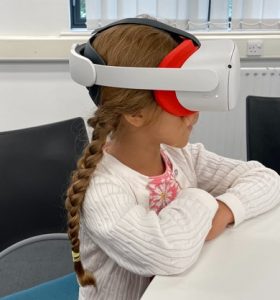
Child aged 5 years using Oculus Quest 2™ Headset
The aim of this project was to co-create immersive and non-immersive VR based on the guided imagery approach to managing moderate to severe eczema, targeted at children aged between 5 and 11 years of age.
Co-creation and Evaluation
Through online surveys (n=6) and semi-structured interviews (n=6), children worked with software developers to codesign the VR Chillout software. Children selected settings, interactions, music and sound effects that they felt would best help them relax and be distracted from their eczema.
Two resources were developed for evaluation: a relaxing 360 video of a woodland scene (click the image to view the interactive video on Youtube) and immersive VR mobile phone games:


Games for mobile phones – (a) Lobby (b) Snowy World (c) Flying over Sakura
For the Oculus Quest 2™, three games were developed. The first game ‘Lovely Fruit Grocery’ provides an immersive interaction experience with cartoon animals, via haptic controllers. The second game is ‘Hand Jet Flying’, which not only keeps the subject’s hand busy but also produces a highly immersive VR experience. The third game is ‘Nature Wonderland’, which focuses on presenting a visually and acoustically immersive and peaceful VR environment with animals, water, and natural elements.

Key findings
- Evaluation of 360 woodland scene, via low-cost VR headsets: children found the experience relaxing and felt they were transported to a different space.
- Evaluation of mobile VR software: children appreciated additional interactivity offered by the Snowy World animals and flying over Sakura landscapes.
- Evaluation of Oculus Quest 2™software (VR game useability survey – n=10 and Children’s Dermatology Life Quality Index survey- n=4): children had the opportunity to use haptic hand controllers and reported that this enhanced the distraction from their eczema. Children felt that the Oculus VR Chillout games were very immersive.
“The animals were very realistic. I enjoyed playing with them and giving them food to eat. I loved the VR games; I feel they helped me to forget my itching.”
(Child aged 11)
Next steps
- We have started discussions with the clinical eczema teams in the South of England and RDS regarding future bidding to proceed to clinical trials.
- We aim to build upon this work with subsequent HEIF calls.
Links
VR Chillout Software Show Reel

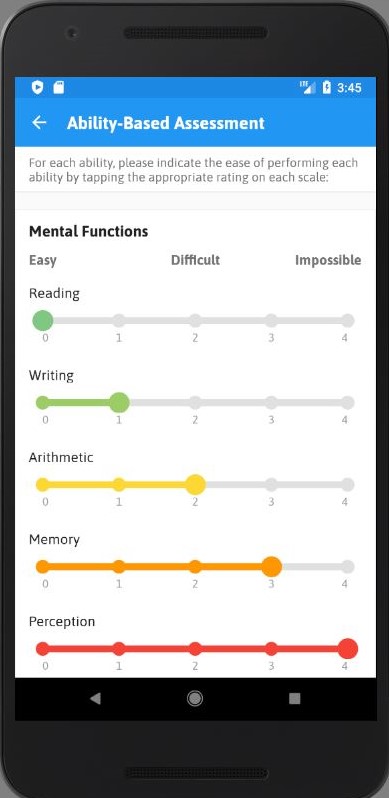


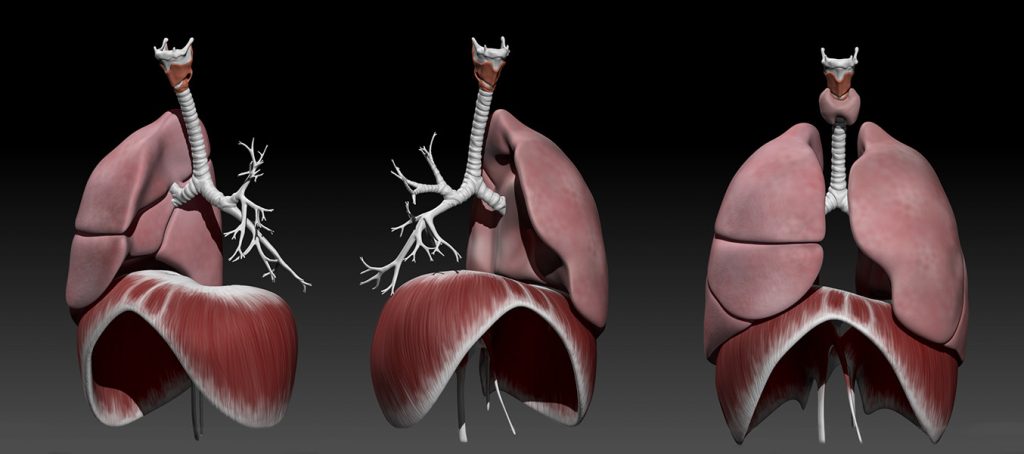
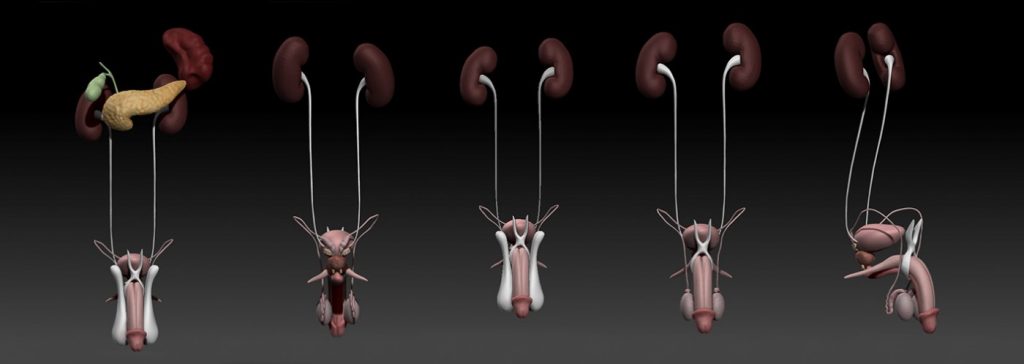
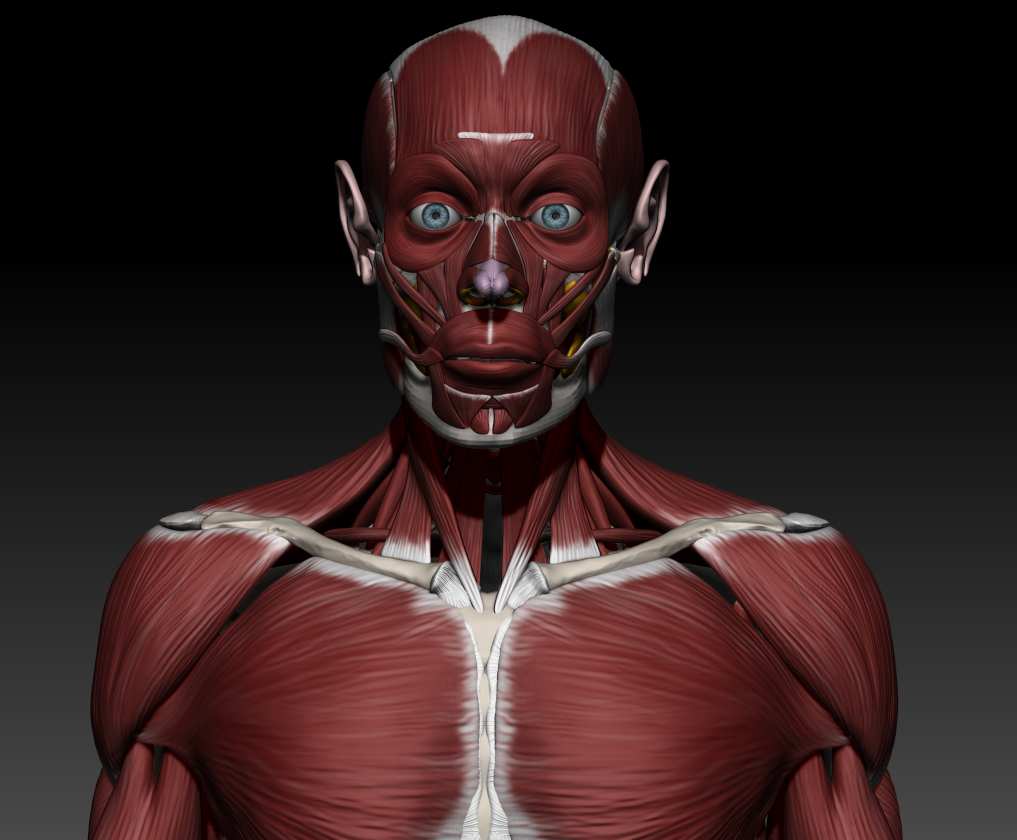
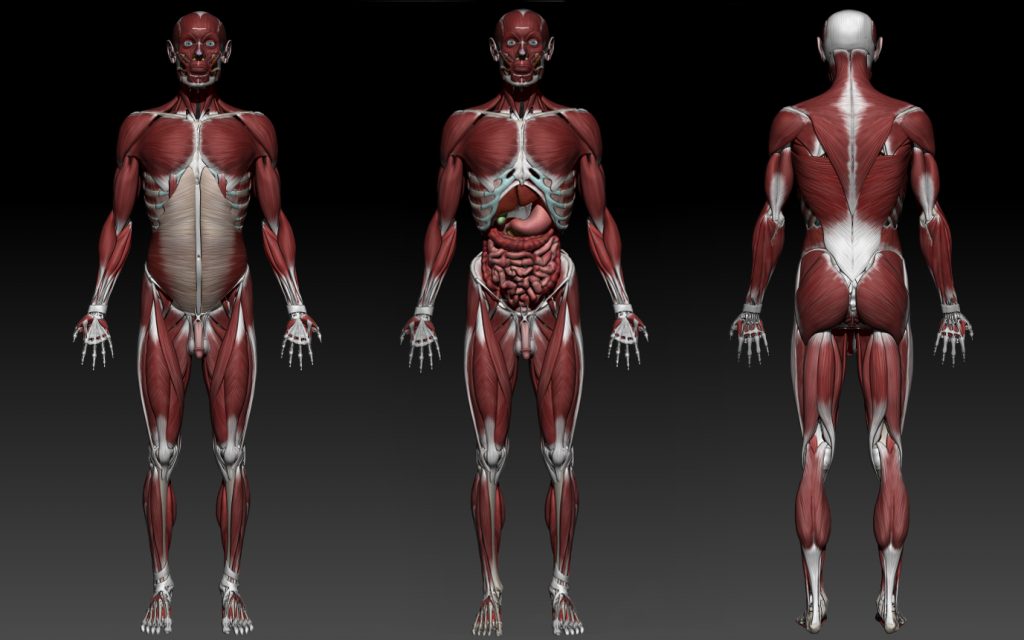
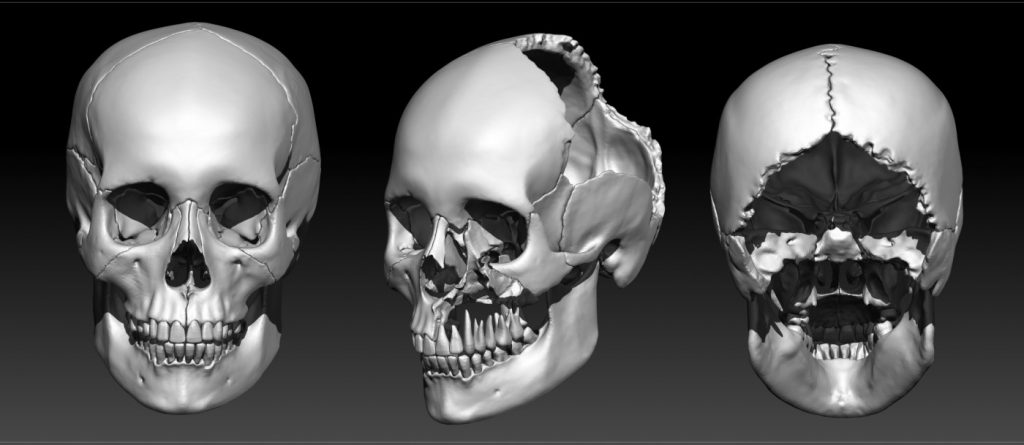
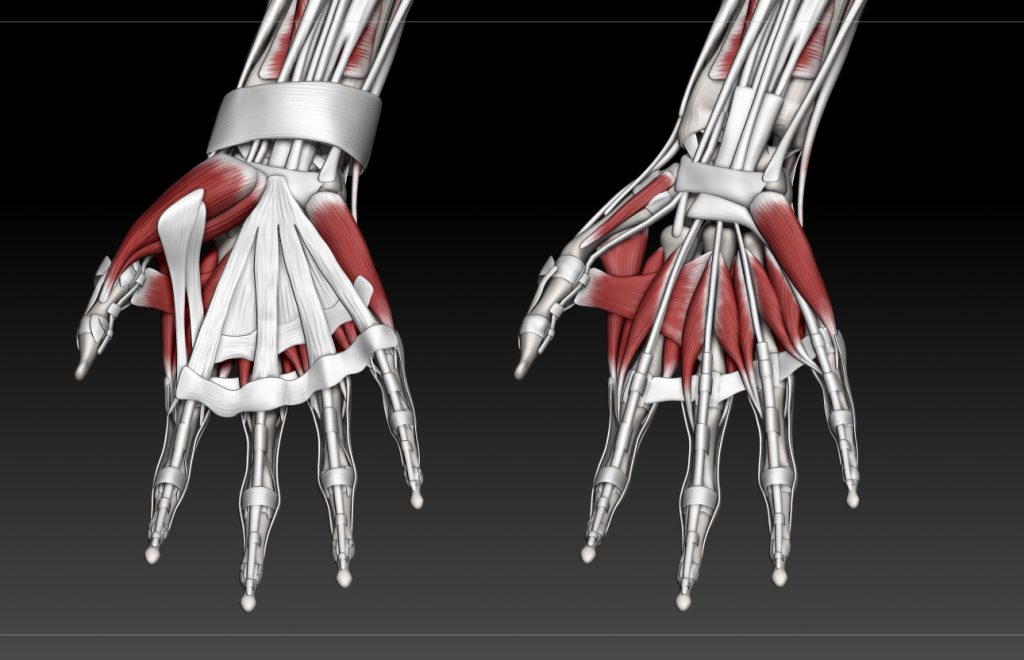
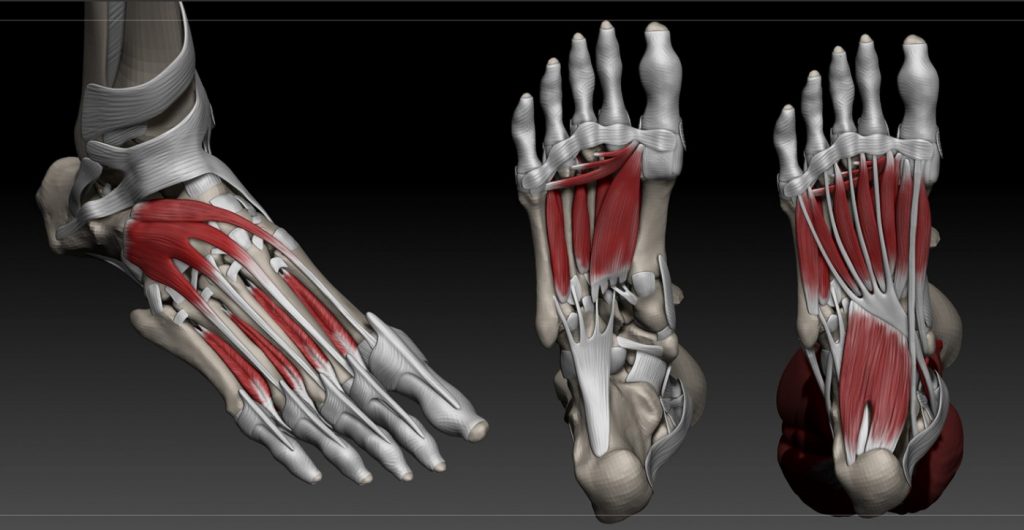
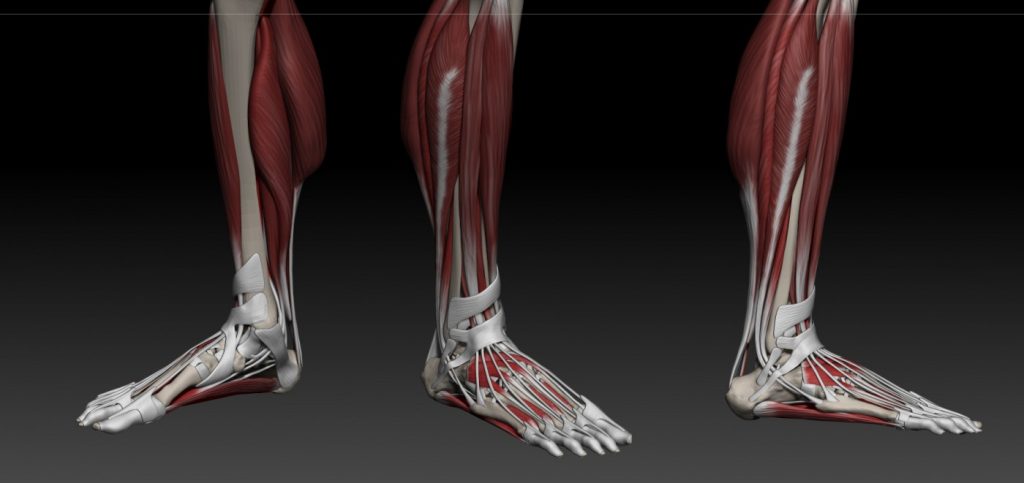
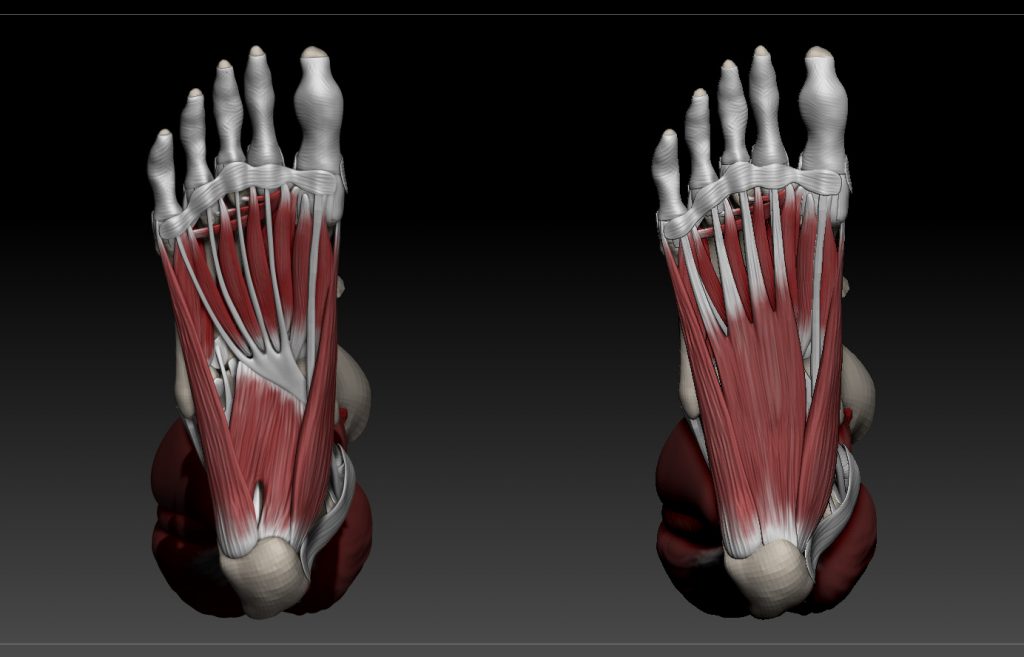
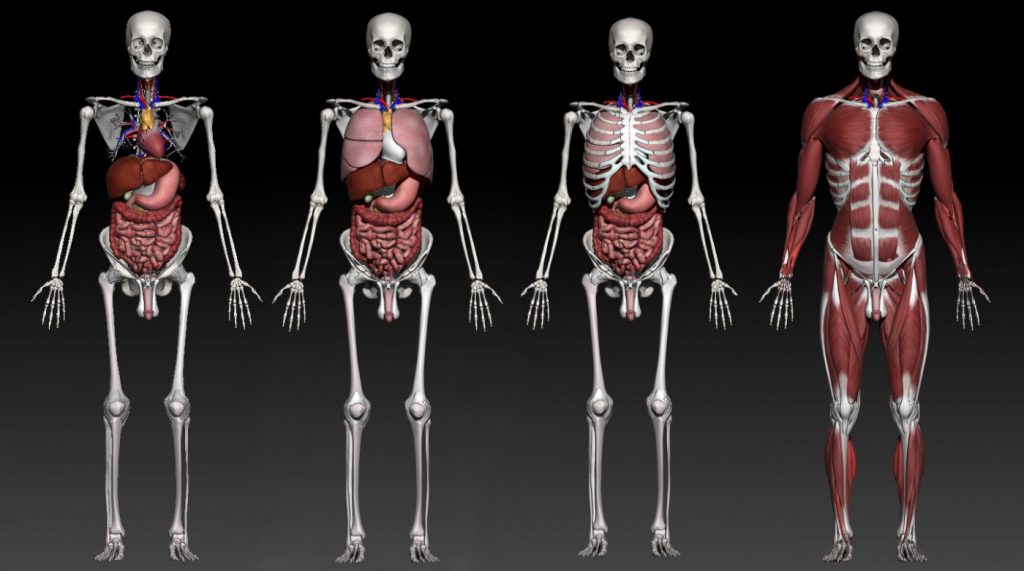












 REF Code of Practice consultation is open!
REF Code of Practice consultation is open! BU Leads AI-Driven Work Package in EU Horizon SUSHEAS Project
BU Leads AI-Driven Work Package in EU Horizon SUSHEAS Project Evidence Synthesis Centre open at Kathmandu University
Evidence Synthesis Centre open at Kathmandu University Expand Your Impact: Collaboration and Networking Workshops for Researchers
Expand Your Impact: Collaboration and Networking Workshops for Researchers ECR Funding Open Call: Research Culture & Community Grant – Apply now
ECR Funding Open Call: Research Culture & Community Grant – Apply now ECR Funding Open Call: Research Culture & Community Grant – Application Deadline Friday 12 December
ECR Funding Open Call: Research Culture & Community Grant – Application Deadline Friday 12 December MSCA Postdoctoral Fellowships 2025 Call
MSCA Postdoctoral Fellowships 2025 Call ERC Advanced Grant 2025 Webinar
ERC Advanced Grant 2025 Webinar Update on UKRO services
Update on UKRO services European research project exploring use of ‘virtual twins’ to better manage metabolic associated fatty liver disease
European research project exploring use of ‘virtual twins’ to better manage metabolic associated fatty liver disease